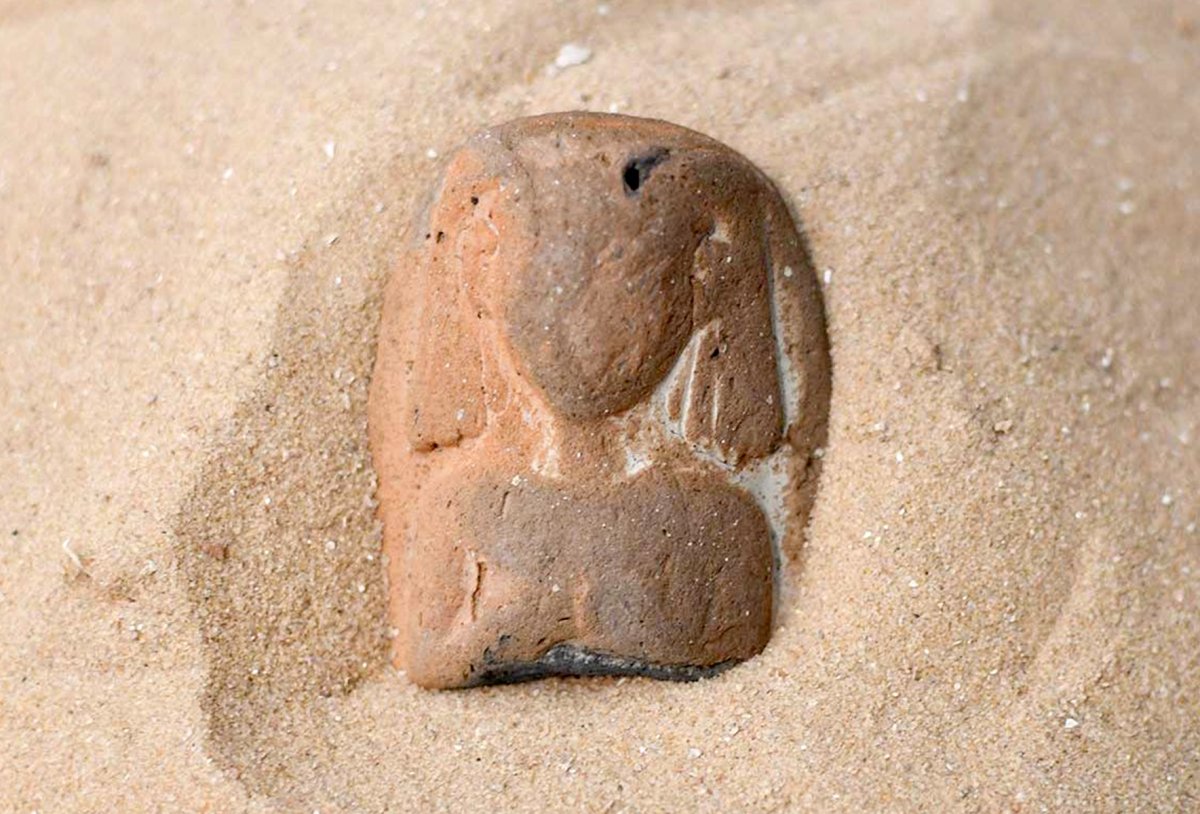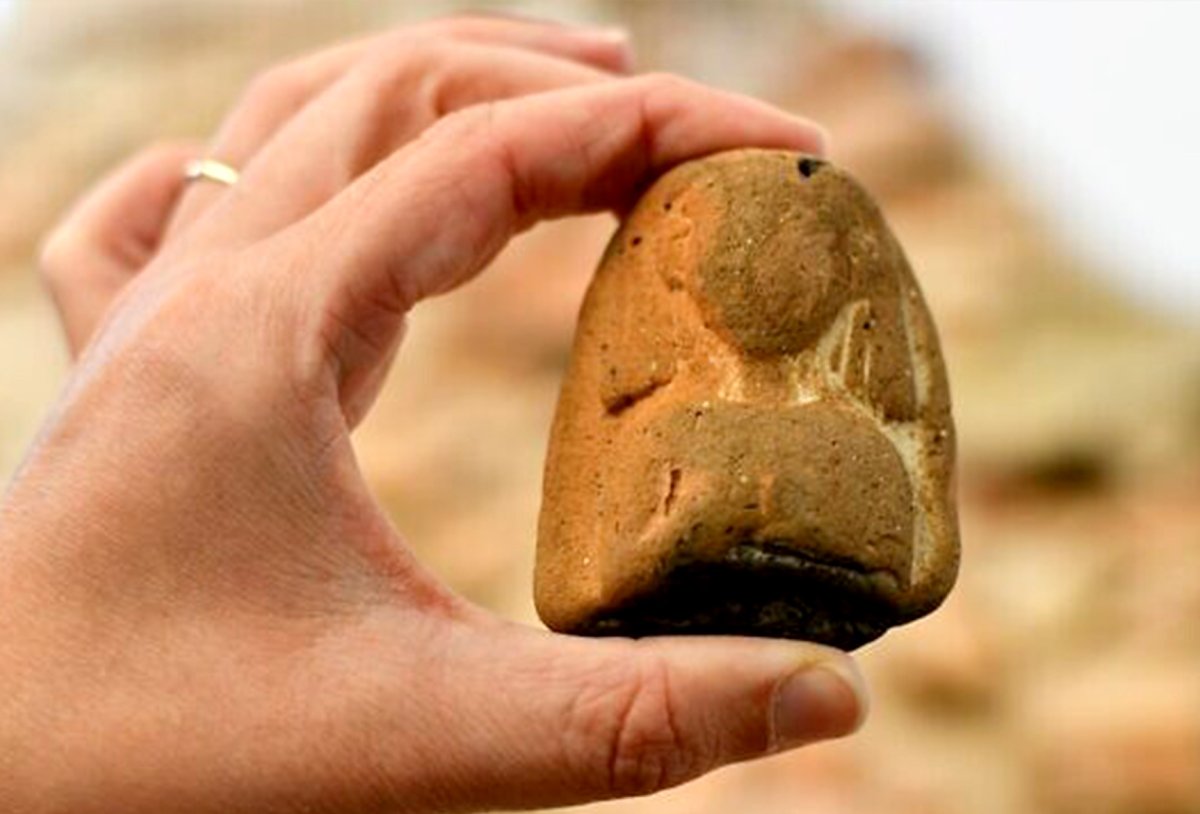A figurine from the age of pharaohs and pyramids has been found on a beach in Israel by a surprised beachgoer.
Lydia Marner, 74, found the ancient Egyptian figurine on Palmachim Beach in southern Israel, about 17 miles south of Tel Aviv, spotting it in the waves.
The figurine was revealed by the Israel Antiquities Authority to be more than 3,000 years old, a model of the Egyptian goddess Hathor.
"It was a very stormy day, the waves were high, the weather was wintery," Marner told the Times of Israel. "We were walking along the sea when I suddenly noticed a stone coming to me."

Hathor was an ancient Egyptian sun goddess, considered to be one of the most powerful.
"Hathor was often depicted as a cow goddess, or as a woman with cow horns and a sun disk on her head, representing fertility and abundance," Liam Davis, an art historian for Art File Magazine, told the History Channel. "She was associated with love, beauty, music, dance, joy, motherhood, and feminine power. She was believed to protect women during childbirth, and to help the deceased in the afterlife, acting as a guide."
Amir Golani, senior research archaeologist for the Israel Antiquities Authority (IAA), told the Jewish News Syndicate that the figurine was clearly Hathor, despite its age and wear, because of the characteristic ox horn-shaped hairstyle.
Figurines like these were often placed around the house by the Egyptian people to bring good luck and fortune.
"The Canaanites used to adopt ritual and religious customs of the Egyptians, who ruled our region at the time," Golani said. "Just like homes today, where you install a mezuzah or hang a picture of a saint on the wall, then, they used to place ritual figurines in a central place in the house, for good luck and protection from bad things."
"These figurines, which were used for worship...are indicative of the Canaanite culture in the Land of Israel, especially during the late Bronze Age," Golani told the Times of Israel.
Marner was not allowed to keep her incredible find, as Israeli law states that all ancient treasures are under the jurisdiction of the IAA.

"Many people have in their homes antiquities that came into their possession under various circumstances. Some were found in the field, others were inherited, and more," IAA director Eli Eskosido told the Times.
"Many people are not aware that according to the law they have to report the antiquities, which are a public historical treasure."
Despite losing her amazing find, Marner was pleased to have gotten the chance to see the figurine up close.
"I'm very happy that it was my privilege to find this very special wonder," she said.
Do you have a science story to share with Newsweek? Do you have a question about ancient Egyptian figurines? Let us know via science@newsweek.com.
Uncommon Knowledge
Newsweek is committed to challenging conventional wisdom and finding connections in the search for common ground.
Newsweek is committed to challenging conventional wisdom and finding connections in the search for common ground.
About the writer
Jess Thomson is a Newsweek Science Reporter based in London UK. Her focus is reporting on science, technology and healthcare. ... Read more
To read how Newsweek uses AI as a newsroom tool, Click here.








